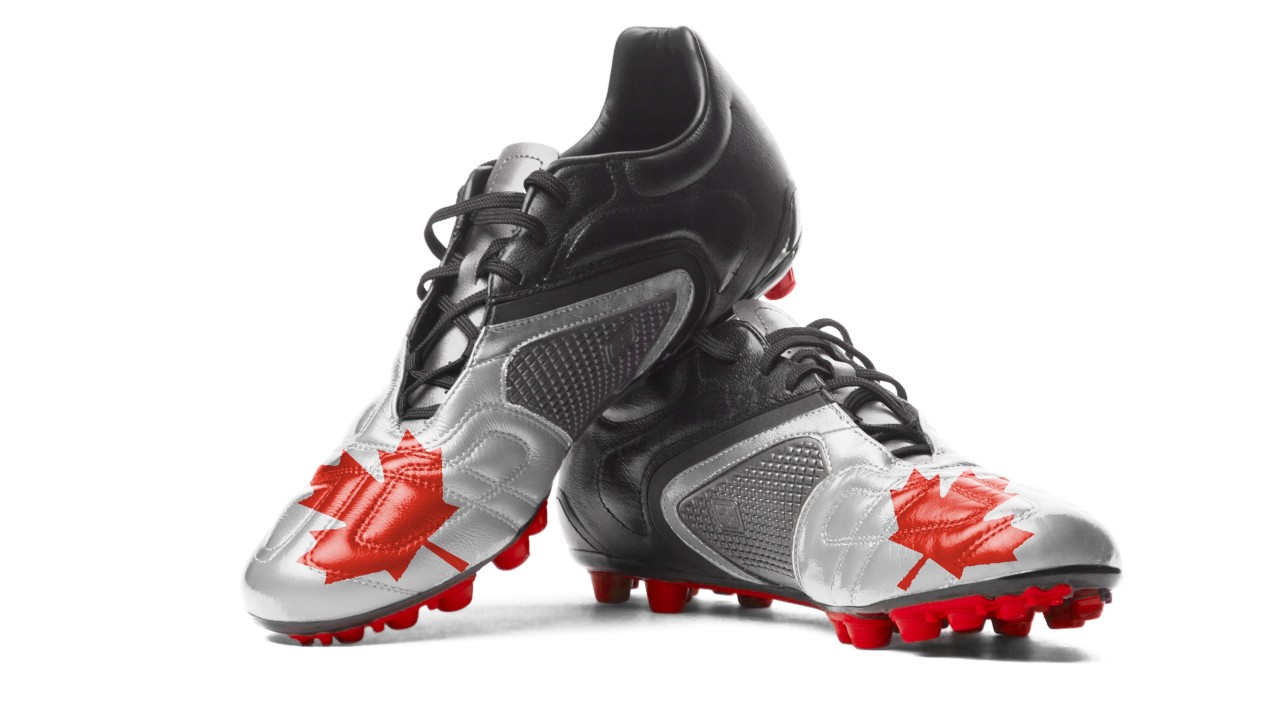Four Simple Attitudes To Help Build A Post-Covid Sport Leadership Mindset


This week, I released the first episode of my new podcast The Regista Room. The podcast focuses on off-field issues in amateur soccer and is designed to help the brave and capable leaders of amateur sport organizations everywhere negotiate their way through this volatile river of covid recovery that has had rock-filled, nasty rapids along the way, with the odd Niagara Falls thrown in there too.
This first episode of The Regista Room examines the issue of mindset, which I decided to target early on because it continues to be such a pivotal and influential component of sport leadership, as this confounded pandemic rumbles on and on. In it, I stress the importance of working out your own mindset, based on values and attitudes that are personal and true to you.
But leaving aside what might be specific to you, what attitudes really make sense to be part of any sport leader’s mindset, nearly two years into this global pandemic? What should a strong post-Covid mindset look like, based on what we have learned as we journey through this crisis? Based on what I’ve discussed with countless amateur sport leaders since March 2020, these four attitudes spring to mind:
1) Keep it simple
I’ve said it before and I will say it again. Good leadership is about simplifying the complex and this is particularly important in times of crisis and uncertainty. It may not be fun or even particularly challenging, but now is about targeting your simple, trusted and reliable programming options and doubling down on a shortened, low risk operating plan.
Think about it. Leaving aside the volatility the pandemic has brought in terms of public health restrictions, the pandemic has left a trail of destruction in its wake that you still have to manage through as a sports organization, even when the masks and hand sanitizer are gone. Limited availability of staff expertise, huge declines in volunteerism, unpredictable enrolment patterns in your sport participant customers, and most recently, crisis in supply chain and raging inflation levels. Is now really the time to freak out your Board of Directors with a complex, expensive and untested advanced training program that is contingent on enrolment of a niche group, paying high participation fees?
For now, take a deep breathe, focus on what you know well, can do well and are confident you can deliver for participants who you know will be there. Frustrating, I know. But now isn’t the time to put all your chips on red twenty-four. Bet one chip on black or red and focus on staying at the table.
2) Focus on what you can control
This is an old one, but a goodie. Everyone knows it, but ask yourself - are you actually doing it? The truth is, we all think we only focus on things that we can control, but actually we often don’t. Sport governing bodies’ rules and policies, broader issues in the sport system, and changes in societal behaviour are popular water-cooler topics I see sport leaders gather to complain at and increase their frustration levels.
Don’t do it! Banging your head against these things is not only futile (remember, if it’s uncontrollable, your motivation in fighting it is purely cathartic mental self-medication), but it’ll also break you down and damage you as a leader. Fighting a battle that can’t be won causes any leader to feel frustrated, powerless, disenfranchised, even victimized and eventually hopeless.
With this pandemic, there are plenty of hooks of ‘uncontrollableness’ to hang your hat on. So be focused! Pick your battles. Learn to shrug when things don’t go your way through no fault of your own. Find humour in it if you can. Not only will be help you alleviate some of the crushing pressure on you through these times, it will also help those around you.
Yes, those around you. Remember – you’re leading. Which means others are following and definitely watching and taking their ques from you. Showing that you are taking these challenges in your stride by what you choose not to do, as much as what you actually choose to do, is the leadership they are looking for in you.
3) Is this really worth it?
This is an interesting on that I have found myself going to more and more. When I first wrote it down, I pulled a face. I didn’t like the look of it at all. ‘Is this really worth it? Sounds a bit like ‘I’m too lazy to care’, I thought to myself. But with the scarcity of resources (in particular people – be it paid or volunteer) and the need for the activities sport organizations decide to invest in to be producing tangible results, asking the question of whether something is really worth it seems like sensible management more than just a notion of ‘I can’t be bothered trying’.
It comes back to the central idea of being judicious about what you commit to. We hope these uncertain times are coming to end, but we’ve been here before. More than once. More than twice, in fact. Critically evaluating what you do is a sensible strategy to employ with everything you do right now. Putting up a large skew of programs not only commits precious resources but also creates the huge work of delaying or taking them all down again if (perish the thought) Covid-19 decides to make another unwelcome return to the party. You’ve been there with that in 2000 and 2001 (depending on where you are) and I know you don’t want to go back there again.
No, this doesn’t mean axing everything and hibernating like we did in 2000. But examine what you are planning to do this year with a critical mind. Whether you are on a Board of Directors or are a Director of Coaching or Executive Director, play devil’s advocate with your planned activities. What resources are you going to have to commit to run these programs? Who will they benefit? How will they benefit your organization? How well monetized are they? Is there unearned media, other marketing value-add or heightened political capital you can harness through them? Are there other value-adds, such as qualifying for grant programs or even private donations, that you need to identify? How flexible are these activities? Can you change them around, delay them, or even put a line through them without too much difficulty or financial penalty?
If you’re in operations planning mode, prod and poke what your plan is committing you to do as an organization and see how it stands up. If you’ve already written your plan, do the same thing. Yes, success can go to the cavalier. But in those cases it rarely lasts and is often down to good luck, rather than good management. Sustained success? That usually goes to those who conduct the best due diligence, manage their risk carefully and are cautious about what they commit to, and for how long. It’s a rule that stands up with or without a pandemic.
So regardless of how Covid-19 hangs around in 2022 or not, employ this critical, evaluating mindset. Is this really worth it? It will stand you well against any risks, pandemic-related or not, that will doubtless continue to swirl around your sport organization moving forward.
4) Prioritize your people
We kind of knew people were important all along, but can we honestly say we moved that understanding beyond rhetoric and nice words? I lay this out in brutal honesty in my book Don’t Blame The Soccer Parents. In amateur sport, we generally take our people – paid or volunteer – horribly for granted. )Yes, I’m talking in particular to you here, Boards of Directors.)
I am sure there are people reading this that don’t like me saying that. But the bottom line is that people who work in amateur sport are often underpaid, have few (or no) benefits and have poor work conditions compared to their counterparts in the corporate or public sectors. Many don’t even have proper employment contracts, are given little-to-no clear direction and are not given structured performance reviews or proper professional development. Volunteers often don’t fair much better, yet are leaned on as the single greatest resource that amateur systemically depends on to function.
I don’t mean to be too critical here. Of course, I understand the financial limitations that exist in amateur sport and the desire to keep it all affordable. You can’t compete with Google for top talent, especially if people just want money. I get it. But we have to start taking our people more seriously and Covid-19 is really showing us why. Staff, coaches, officials – they were all down in 2021 and look set to remain that way in 2022.
So change the way you think about your people. A friendly punch on the arm and a ‘good job’ isn’t enough anymore. You have to guard them, especially your best ones and those who have unique skill tests or tacit knowledge of how your operations work.
Start by finding out what market rates are for their salaries and meeting or bettering them. ‘We can’t afford it!’ I hear you cry. Are you sure? Is the money really not there, or are you just choosing to spend it somewhere else?
Think about that. What’s more important – sending athletes to that extra tournament in Wisconsin, or Jessica over there, your office administrator? (Oh, by the way, Jessica is the only person who knows how to operate your registration system, book your facilities, and knows the ages and first names of the kids of each of your volunteer coaches).
If you can’t pay them more, then find other ways to show your people they are important, because they are likely sizing up major life choices right now and changes that may include your sport organization. This so-called Great Resignation is for real, and actually far deeper reaching than arbitrary employment. Amateur sport isn’t exempt from it.
So find ways to make your staff want to stay with you. Some professional development. A small thank you gift. An extra day off over a long weekend. Keep reaching out to your volunteer coaches, even if your programs aren’t active. Find whatever budget you can to invest in their coaching development. Anything to guard your key people. Show them why they should stay. I can’t stress this enough!
You simply can’t restart your sports club and bring it back to 2019 levels if your people are no longer there. So prioritize them!
-----------------------------------------------------------------------------
Paul Varian is the President of Capitis Consulting Inc., a boutique management consultancy focused on adding value in and around the amateur sport Boardroom, author of Amazon #1 Best Selling Soccer Management Book ‘Don’t Blame The Soccer Parents’, and host of amateur soccer management podcast The Regista Room. Subscribe at www.capitislearning.com and follow Paul on Twitter at @paulvarian or on LinkedIn at
Paul Varian.
Subscribe to Capitis Learning
Subscribe today to keep up to date!







